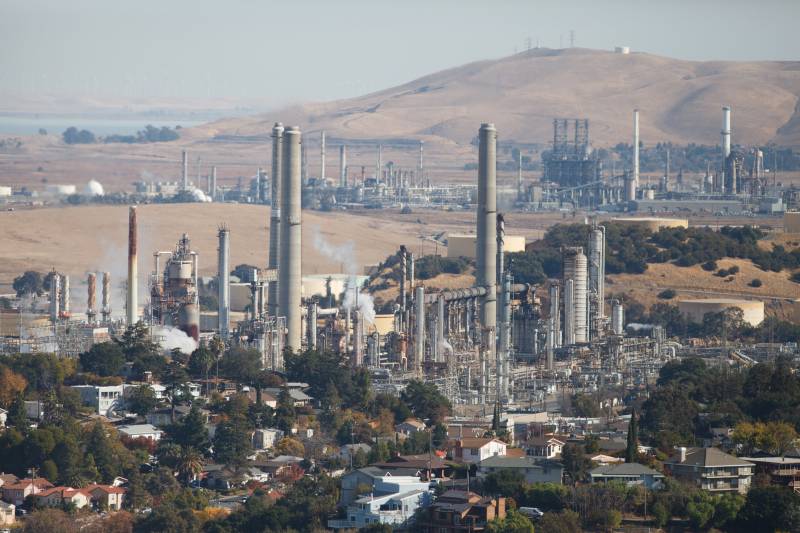The fires come months after Marathon began converting its Martinez facility into a biofuel refinery. Like the Phillips 66 refinery in Rodeo, Marathon has shifted away from crude oil and begun processing vegetable oil and animal fats into biofuels.
Scott says union leaders and workers at Marathon have voiced concerns to the company about training and staffing at the refinery as it transitions. He says employees have told managers the refinery’s training program is deficient, that new workers were pressured to learn the controls too quickly, and that the facility is understaffed.
“If nothing changes, we will certainly experience this type of incident again,” Scott said.
Marathon pushed back on that criticism.
“Our training and staffing levels are based on industry standard practices and are regularly evaluated for effectiveness, quality and other measures,” the company said in an emailed statement Friday morning.
“Our facility has a comprehensive training plan that requires all operations personnel to demonstrate proficiency in their roles before becoming qualified to work, including knowledge, skill and capability related to their specific unit,” the statement reads.
Some environmental groups have sued Contra Costa County over the Marathon and Phillips 66 conversions, arguing that the county’s review of both plans was flawed. Greg Karras, an energy-transition consultant who is not involved in the lawsuit, says the fire is just the latest sign that the conversions are dangerous.
“It was entirely predictable,” Karras told KQED. “They’re repurposing old refining equipment for this new stuff, and they’re finding all sorts of things going wrong.”
But Eric Smith, a Tulane University professor specializing in energy issues, says the refinery changes do not make the facilities more dangerous.
“Operators do need specialized training to avoid accidents, but with proper training, I would opine that they are no more dangerous than the other conventional units,” Smith said in an email.
The blazes come amid recent increased attention on the safety of refineries in the Bay Area.
This week, air regulators issued four notices of violation against Chevron after its Richmond plant had a major flaring incident that sent flames and a large column of smoke into the air, leading dozens of local residents to issue complaints to the local air district.
